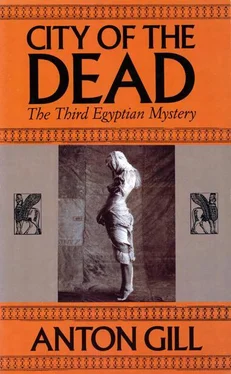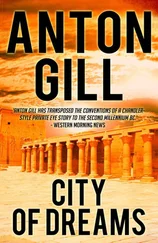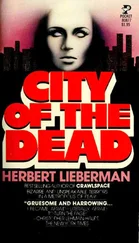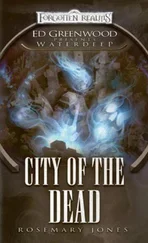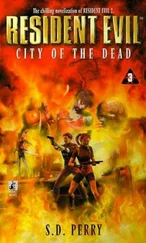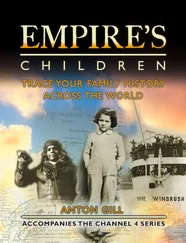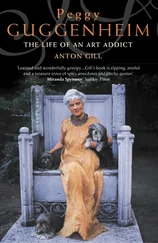Anton Gill - City of the Dead
Здесь есть возможность читать онлайн «Anton Gill - City of the Dead» весь текст электронной книги совершенно бесплатно (целиком полную версию без сокращений). В некоторых случаях можно слушать аудио, скачать через торрент в формате fb2 и присутствует краткое содержание. Год выпуска: 0101, Жанр: Исторический детектив, на английском языке. Описание произведения, (предисловие) а так же отзывы посетителей доступны на портале библиотеки ЛибКат.
- Название:City of the Dead
- Автор:
- Жанр:
- Год:0101
- ISBN:нет данных
- Рейтинг книги:5 / 5. Голосов: 1
-
Избранное:Добавить в избранное
- Отзывы:
-
Ваша оценка:
- 100
- 1
- 2
- 3
- 4
- 5
City of the Dead: краткое содержание, описание и аннотация
Предлагаем к чтению аннотацию, описание, краткое содержание или предисловие (зависит от того, что написал сам автор книги «City of the Dead»). Если вы не нашли необходимую информацию о книге — напишите в комментариях, мы постараемся отыскать её.
City of the Dead — читать онлайн бесплатно полную книгу (весь текст) целиком
Ниже представлен текст книги, разбитый по страницам. Система сохранения места последней прочитанной страницы, позволяет с удобством читать онлайн бесплатно книгу «City of the Dead», без необходимости каждый раз заново искать на чём Вы остановились. Поставьте закладку, и сможете в любой момент перейти на страницу, на которой закончили чтение.
Интервал:
Закладка:
The death of their fellow had been to their gain, because killing him had cost Tutankhamun the final seconds of advantage he had. They had both his horses by the head now, leaning back on their mounts to slow the chariot, digging in with leg muscles like rope to the brown flanks.
One more yell produced a last flagging effort from his horses, but they were beyond obedience now, frightened and confused. He felt that reality was receding from him. As if in a dream he watched his team dragged to a halt, lowering their heads as they were released, submissive, done. From behind him at last a voice issued one harsh and laconic order:
‘Quickly.’
Tutankhamun’s heart acknowledged that he had heard the voice of death, but still the events around him seemed to have nothing to do with him. He stood in the chariot like the captain of a sinking riverboat, watching as the horses were hastily unhitched. The tilting of the shaft downwards as they were withdrawn and the men holding it lowered it to the sand made him stagger. Then, in the precise second before he was seized and dragged from his place, reality flooded him, and in a moment of anguish he saw Anhksi again, whom he would never see again, whose warm breath he would never again feel on his chest as she slept. He thought of the child he would never know, and the kingdom he would never rule. How had he been so cruelly out-manoeuvred? He had been so careful!
A last thought crossed his heart: if he could not live as a king, he would at least die like one. He plucked an arrow from the quiver just as they laid hands on him, and flung him at the rider whose voice, it appeared to him, had issued the order; a thin, angular man with a scant beard. Its flight was true, and for a glorious, hopeful moment it looked as if it might strike him in the eye. But it fell short. Tutankhamun had time to see it dash against his right cheek, drawing blood, before they pulled him down.
Now he no longer seemed to be part of his body. He watched from somewhere in the air above as they forced it to its knees, pinioning its arms. Two men did this, destroying their hearts and souls for all eternity as they committed the crime. He could not see their faces; indeed did not want to. Two other men were overturning the chariot with feverish haste. Two more were slinging the body of the man he had killed over his horse, which they had recaptured. He could see how the wind, which had borne his voice away from his friends, was blowing sand over the mess of their tracks. By the time Nehesy arrived, there would be no sign of what had happened. Except for Sherybin. What would they do with him?
But as he watched, more horsemen, working in the same hasty silence, dragged the charioteer’s body up. His wound was split over one wheel of the machine, as if he had fallen on it in the accident. The sword was cleaned carefully and stowed in its place on the chariot. Still the wind continued its work as accomplice, erasing the traces as they appeared.
Then the voice spoke again. There was tightness in it, but he could not tell, nor did he care, whether the tone stemmed from anger at the wound or increased urgency.
‘Quickly.’
It occurred to him at last that they had not stopped his mouth. He was still bent forward, held, and he could not fill his lungs. But he opened his mouth and started to bellow his war cry. Suddenly it was a desperate cry for life. Ankhsi appeared before him so vividly that he could smell her, taste her soft body, bury his head in her breast. The yearning was unbearable.
Then the blow fell, and, before the darkness came, all he could feel were the sand in his nostrils and a trickle of blood on his face.
FOUR
‘It was an accident?’
‘A hunting accident. Yes. Most tragic.’
Huy looked out of the broad window of the room towards a columned gallery, beyond which the sun hung in a hard blue sky. Below, the river ran between its dun banks, crowded on this side with the jumble of mean houses that formed the district where Huy lived.
Much had happened in the two days which had passed since the hunting party had secretly brought the king’s body back, although no public announcements had been made by the newsbreakers. That Huy was being given privileged information had been impressed upon him at the beginning of this interview. But the city was already full of rumours, and there was an indefinable tension in the air, which Huy had even picked up in the harbour quarter, where people’s concern for the pharaoh was slight.
Now, he tried to absorb the shock of the king’s death. He looked at Ay, standing by the window. In age, Ay had grown a Paunch, but his bird-like, intellectual head had barely changed. There were wrinkles, and the hairline had receded; but the hair was dyed dark, and Huy would have had no difficulty in recognising the man he had known, distantly, at the City of the Horizon.
“When will the news be broken?’ Huy asked.
It must be soon. You are aware how people are beginning to fear something. Neither the king or queen have been seen in public, and that will strike everyone as strange, especially after the announcement of the queen’s pregnancy.’ Ay spoke with formal stiffness, which Huy supposed had become a habit after years in politics.
‘Why has it been delayed?’
Ay shook his head. ‘Horemheb has decreed it. Of course, he tells me it is for reasons of security. But if the king’s death was simply a question of a tragic accident, what reason could there be for secrecy?’
Huy reflected that the wheel had come full circle, and tried to deduce what Ay was deliberately omitting from his account. In the old days, at the City of the Horizon, Huy had been a scribe in the legal section of Akhenaten’s court, and now and then had to do with colleagues attached to Ay’s office. After the fall of Akhenaten, and the ruin of his city, Huy imagined that Ay must either have died, or escaped into one of the friendly neighbouring countries – Mitanni or Babylon, perhaps – to live out his life in self-imposed exile. But even before the court had returned to the Southern Capital, Huy had seen Ay with Horemheb escorting the young Tutankhamun to the ritual of Opening the Mouth of his predecessor, Smenkhkare. Ay was clearly a survivor.
Huy had returned to the Southern Capital himself soon after, and, forbidden to continue to practise as a scribe because of his association with the disgraced Akhenaten, he had turned, partly by chance, to solving the kind of problems people had which they did not wish the Medjays involved with. His association with the great men of the city a few years earlier seemed to have borne fruit at last. Now he had been summoned to Ay’s presence in secret, on the recommendation of his former employer Ipuky, another man who had managed to escape unscathed after the fall of Akhenaten.
And now Ay was asking him to solve a problem. At least it looked as if the conversation was going that way. Quickly Huy ran through what Ay had told him.
Two days earlier, Nehesy and the hunting party which had accompanied the king into the desert had returned with his chariot and horses, and the bodies of the king and his charioteer. Knowing what the public outcry would be if he rode openly into the city, and scared about his own fate as the professional in charge of the expedition, Nehesy had made sure to return at nightfall. He had then gone straight to Horemheb with the news of what had happened.
‘What happened then?’ Huy asked the old man. They were both seated by a low table on which wine and dates had been placed, more as a gesture than genuine hospitality. What they had to talk about was too serious to be discussed over food and drink.
Ay shrugged briefly. ‘All the information I can give you is what I was told by Horemheb, so bear that in mind. Of course he had to share the news with me immediately. I had just retired to read when his messenger came to fetch me.’
Читать дальшеИнтервал:
Закладка:
Похожие книги на «City of the Dead»
Представляем Вашему вниманию похожие книги на «City of the Dead» списком для выбора. Мы отобрали схожую по названию и смыслу литературу в надежде предоставить читателям больше вариантов отыскать новые, интересные, ещё непрочитанные произведения.
Обсуждение, отзывы о книге «City of the Dead» и просто собственные мнения читателей. Оставьте ваши комментарии, напишите, что Вы думаете о произведении, его смысле или главных героях. Укажите что конкретно понравилось, а что нет, и почему Вы так считаете.
